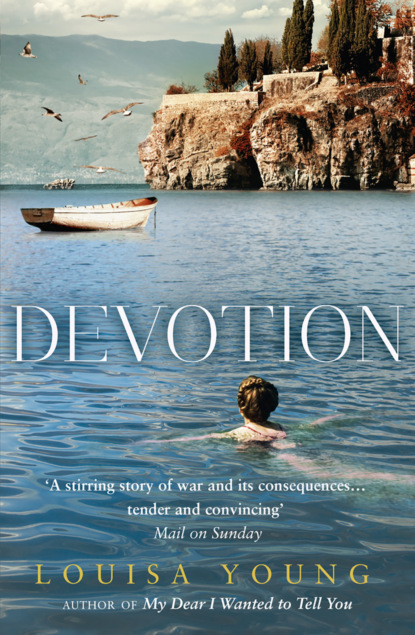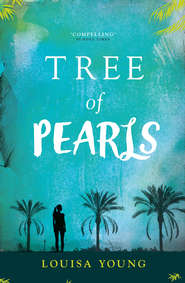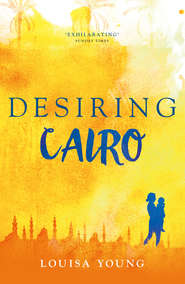По всем вопросам обращайтесь на: info@litportal.ru
(©) 2003-2024.
✖
Devotion
Настройки чтения
Размер шрифта
Высота строк
Поля
As they drew up, a man lounging on the far side against the river wall caught Tom’s eye through the glass of the window. He would catch any eye. There was something naturally flamboyant about him, an unspoken expectation of attention hanging around his big shoulders and barrel chest. His hair and his coat were long, his waistcoat was striped blue, and he was smoking, with an air both idle and attractive. The bottoms of his trousers, Tom noticed, were soaking wet.
The driver was fumbling with the brakes; Nadine was saying, ‘Oh, darlings, look!’ and as she opened the car door to get out the man strode up, arm outstretched, black curls going back like a ram’s horns from a strong brow, wild eyebrows curling off in all directions. In a fluid movement he opened the door, pulled Nadine up from her seat, and embraced her. Then he pushed her away to look at her, clasped her head with his hands in her hair, and cried out, ‘My sister!’
Nadine was startled, yes – but delighted. Tom found himself smiling. You would think he was in his own house, in this piazza, he thought. Welcoming guests. He launched himself out of the car and stumbled upright. The man turned to him, big brown eyes, a big nose diamond-cut on the bridge and cavernous at the nostril, smiling. Tom felt a flush of infidelity to Riley. He wanted this man to like him. He wished that he wasn’t so very blond. A man should be dark. Like this man.
Some children had appeared. Two skinny boys, smaller than him. Good. A girl, a little younger than him, quite tough-looking, big eyes, a lot of hair which reminded him of ropes. He wondered quickly if she would choose Kitty or him. He thought he was prepared not to mind if the girls went off together, so long as it didn’t mean he had to be with the small boys, but – actually – he knew at first glance that he wanted this girl to want him, and that it was his responsibility to make that happen. First impressions, and all that.
So: ‘When in Rome!’ he cried, and embraced the girl in a huge, ungainly, long-armed hug. He took hold of her head, kissed her cheeks and cried, just as Aldo had, ‘My sister!’
It went down extremely well.
Kitty, pink and fair, saw the tall curly-haired man – the new cousin? – hugging Nadine madly. Kitty was aware that a mother could disappear just like that, and leave one apparently somehow different to other people, so she watched in slight alarm as the only mother she had ever known was engulfed by the stranger. When she had wriggled out of the car, she stared up at him, hoping that he would notice her, and that he wouldn’t. He did. He bent from his great height – and picked her up – something she hated from strangers – and actually – ! – threw her in the air, as if she were two years old. He caught her, very securely, in strong arms.
He said, ‘Signorina, sorry. You are sweet like a doll. I apologise for loss of dignity.’ He set her down, and crouched a little, and held out his hand, and she had to take it or be rude, even though she was breathless, and his look was so frank and nice that she smiled, and then he kissed her hand and she just laughed, and looked to Nadine, and Nadine was laughing too – so following Tom’s example she boldly took the man’s hand, and kissed it right back. At which there came a stream of Italian like a waterfall down a hillside. It sounded beautiful. Her eyes widened.
The house was very simple, plain and bare-seeming, the furniture dark against white walls. It was the heat of the day – ferocious heat! – and Kitty had never seen shutters before. The dimness surprised her and she blinked. Her English habit was to welcome any available sun, at all times, under any circumstances. Her entire life adults had been calling to her ‘the sun’s out children, do go into the garden and run about’. How strange to block it out!
The English tried to carry their bags, and Aldo made his small boys help even though they were only about six and the bags were far too big. Kitty kept an eye out for Tom: after helping carry and being introduced, he spun off the side of the group, and went back out to look at the river.
Kitty and the girl, Fernanda, eyed each other. Aldo said something in Italian and the girl beckoned to Kitty to follow her up the narrow white age-smoothened marble staircase. In a little room at the back, vaulted and whitewashed, the girl said, unsmiling and careful, ‘Do you like to reading books?’ And Kitty said only, ‘Yes,’ because despite the preparatory Italian lessons they had all taken, she was so utterly excited that she had forgotten the word ‘sì’. Nenna fetched one: in Italian, but with pictures. Kitty in turn brought one of hers from her little suitcase: The Legends and History of Rome, retold for children, which Nadine had got for her from the library. Nenna studied it carefully, smiling at the pictures, looking at the English words and working her way through them. Kitty watched her, admiring her face which was not like English faces: bonier, more golden. It was like Nadine’s face though, with the wide eyes. As Kitty watched, a great smile spread across it, and Nenna looked up and thrust the book towards her, pointing at one word: Tarquin.
So Kitty obediently settled in to read about how he had lived and died and how his body was thrown into the Tiber and how – oh – an island – this island? – grew up over his skeleton. Kitty thrilled. Could it be this island?
She looked up at Nenna. Was she being unkind? Was she trying to frighten her? But Nenna’s face was eager. She grabbed the book again, riffled through it, stopped with a look of delight and passed it back, pointing this time to Aes – Aescu – Kitty could not read it.
‘Esculapio,’ Nenna said, watching. Kitty read anyway. She was accustomed to names she could not pronounce. Aescu-thingy did perfectly well. This story told of a medicine god arriving on a boat from Greece to save the Romans from a plague, his staff wreathed with a snake because snakes know the secrets of magic herbs, from crawling on their bellies, and the boat turned into an island in the river – this island. Well, it has to be. There only is one island. Nadine showed us on the map.
Nenna sat patiently while Kitty read, and when she had finished took her by the hand, out of the house, across the piazza, and across the road. Kitty was still wondering about how two children could just leave the house, alone, when Nenna nudged her, pointing upwards: above a doorway, a staff, wreathed in a snake. ‘Ospedale,’ said the sign, and Kitty could read that. Her skin tingled a little. Skeleton, tyrant, hero, god, snake, boat, hospital.
Nenna stood in front of her, tall, languid, expectant. Kitty narrowed her eyes, blinked, and said sì, three times. Then she said ‘ospedale’, knowing from her lessons to say the e on the end. Osspeddarlay.
Nenna pointed at the snake. ‘Serpente,’ she said. Serpentay.
‘Serpent,’ said Kitty calmly.
Nenna pointed at the ground and said, ‘Scheletro.’ Skeletro. There was a naughty look in her eye.
Kitty grinned. ‘Skeleton!’ she said.
Nenna reached over and pinched Kitty’s cheek gently between the knuckles of her two first fingers.
‘Carina,’ she said, and Kitty felt both approved and patronised, and that felt absolutely right to her.
Later, Nenna wondered what she would offer the little pink cousin next. Not the river – she was too small for that. That Nenna would save for the boy. Also it was a bit late to go out. So, inside the house … the stairs!
So she showed Kitty how to slide on a cushion down the shining marble staircase. When Kitty cried out in joy that it was like a boat going over the rapids, Nenna recognised the word boat, smiled and sealed her loyalty, because that was what she had always thought about this game, that she was a boat tumbling down weirs and waterfalls, and nobody else, not even Papà, had ever noticed. Nenna and Kitty said to each other, ‘Barca – boat. Boat – barca.’
It was at this moment that Tom returned: soaking wet, mucky, wildly happy, dripping over the tiled floor in the doorway.
Nenna fell silent, retreated, and watched.
Her mother Susanna, coming into the hall from the kitchen with Nadine beside her, had two hands up in the air, expressing disbelief. She began to shake her head and tut. Her small boys peered out from behind her, interested. Tom gazed at them all with his wide blue eyes.
‘Stop that, Tom,’ Nadine said.
‘What!’ cried Tom, defensive.
‘Charming her!’ she said. ‘Kitty, throw him a towel. Tom – dry off, and either keep out of the river or dry off down there. No dripping on Susanna’s floor.’
Tom towelled his head, hair sticking up. ‘I didn’t know if I was meant to strip off or what,’ he said. ‘So I didn’t. I thought that would be best. I’ll take them off now—’
Nadine took him by the ear and said ‘You’re a little monster,’ then ‘Get upstairs,’ she said, pushing him, and she gave him a kiss as he passed.
Lying that night in bed Nenna listened to the water outside the window, tumbling over the rocks, and felt its familiar chill in the white and patchy plaster on the walls. Kitty, lying beside her, was restless. ‘Nenna,’ she said quietly. She pointed to the high wooden head and tail of the bed, said ‘Barca!’ and smiled. Then she pointed up at the vaulted ceiling of the room, made movements with her hands denoting upside-down, and said ‘Barca!’ again, pleased and wanting to please. Nenna understood, smiled at her, and said ‘Buona notte, carina. Sogni d’oro.’ Aldo stuck his head round the door to kiss them goodnight, and Kitty fell asleep with the look of a child who had just discovered that the world was a very strange and potentially glorious place.
Sometimes, at night, Nenna imagined the island shaking itself free of the travertine stonework that moored it in place between Trastevere and Sant’Angelo. It would pull its roots out of Tarquin’s great skeleton, deep in the Tiber mud, its bonds would fall away, and slow and stately it would begin to move back down the river towards the sea, trailing froth behind it … where it was heading she didn’t know. She wasn’t sure that Kitty would turn out to be someone with whom she could discuss these things.
She lay and thought about Tom, who had been into the river all alone, before she even had the chance to offer it to him.
That first night Nadine wrote to Riley.
Isola Tiberina
Rome
17 July 1928
Riley my darling – it sounds like an Irish song that way round, doesn’t it? I want to tell you absolutely everything about everything – the journey (easy); the house – yes, they live on the actual island, right in the middle of the Tiber! Do you remember? With the hospital and the bridge with the head with four faces, that you said was a good symbol of the fallibility of the human race: all looking in different directions, not realising they were one creature? The back of the house slides right into the rocks and the river as if it were Venice or something. You look out the window and there it is. SO romantic. Rushing river noise all the time. And of course rather damp. And inside the house we have Aldo, who is terribly handsome and charismatic – I think you’d like him but perhaps not as he does take up a lot of room. He talks all the time – in English and Italian mixed so we are all learning and picking the language up (some (the children) faster than others (me)). He’s an engineer of some kind and plays the guitar. The little boys clamber all over him while he’s playing and he doesn’t mind at all. Lots of hair, big wise eyes like brown honey. He said tonight: ‘How do you like me? My enemies say is Aldo more Roman or more Jewish? I look like both, of course’ – and he does! You could just picture him in a toga, or in the robes of one of Bernini’s marble prophets. They don’t seem to be religious at all, thank god – can one thank god for that? It seems rather absurd – anyway, of course he doesn’t wear robes, he wears slightly flashy city garb: black suit, a white shirt, a pale blue waistcoat buttoned high at the neck. His English is eccentric but frankly I have no right to complain with my (lack of) Italian. I am reminded constantly of that line of Milton’s about educating children, about how ‘they may have easily learnt at any odd hour the Italian Tongue’. Susanna, his wife, is quite quiet but smiley. I haven’t got hold of her yet but I will though she has next to no English—
Here Nadine was about to write about the delicious dinner that Susanna and Aldo had produced on their first night. Even now, after all this time – perhaps because she was far from home and its everyday habits – it was easy to forget for a moment how unkind it would be to mention such things to her husband whose ease with food had been shot away with his jaw at Passchendaele.
The children are Fernanda, known as Nenna, who has lots of hair and a pale wide face like a Piero della Francesca, inscrutable, and the children terribly want her to like them, and two younger boys who I can’t tell apart – black-haired, naughty-eyed, tumbling and playful: Vittorio and Stefano, a pair of wriggly black-haired shrimps, who seem to be about six. Perhaps one of them is bigger than the other. Nenna is perhaps ten – a bit older than Kitty and a bit younger than Tom, so that’s all right, though I’m not sure what Tom is going to do all day as they – the girls – have already sneaked off upstairs and can be heard singing. The marvellous thing is that the piazza is more or less like the park for us, so they can just go out and lark about and be perfectly safe. I dare say they’ll all be bilingual by the end of the week. People pinch Kitty’s cheeks between their knuckles and call her a beautiful blessed blonde angel: ‘Bella bambina biondina, un angelo, bellissima bionda beata.’
She stopped a moment as she wrote this, and then in a rush she wrote—
Darling – I’m sorry but it’s on my mind again, perhaps because of being here, where we were when we were so young & silly, and when we first so truly came together – tell me, again, please, that you don’t hate me for not being able to give you a child of your own? I don’t mean tell me, or hate me, I mean – I suppose, thank you, again, for not adding your disappointment to my own. Perhaps I might go and get myself blessed by some saint of fertility – I’m sure there is one – several probably – or perhaps I will just remain grateful that Tom and Kitty needed us – oh, that’s come out wrong too. That we were there when they needed us.
She stopped again and considered crossing out the whole passage – which would mean starting the letter from scratch.
No. He could know her thought processes, flawed as they were. One day perhaps her cycle would settle into actually being a cycle; and she’d put on some weight, and her ‘system would calm down’, as the last doctor had put it.
She continued:
I’ll send this now and write in more detail tomorrow. If you see Rose – and please do see Rose, make her come to dinner. She works so hard and you can talk politics and social policy without the children pulling your sleeves and complaining – tell her I will write to her. And make sure she doesn’t go to Locke Hill too often. I still fear she’s going to decide Peter needs her again. How is he? Lord, see how the habits stick! I am not worrying about Peter, or about darling Rose, or even about my dear dad or you. How is my dear dad? How is my dear you? I love you I miss you and I will do my very best to get thrown out of the Sistine Chapel in your honour and in memory of 1919—
Nadine
It was family legend how during their honeymoon in Rome, in 1919, Riley had lain on the floor, the better to gaze at the astounding ceiling, and been thrown out, and gone back, and been thrown out, five times. Long ago, he had wanted to be a painter, but the war had swallowed that notion. Nadine, it turned out, was the artist.











